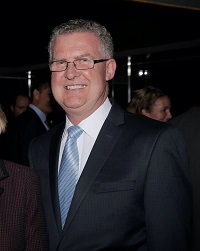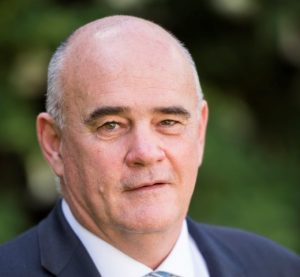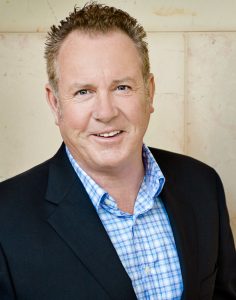
Industry reacts to “indirectly supportive” Budget 2022
But workforce challenges remain a key concern
While the Federal Government’s 2022 Budget has not provided direct funding to the accommodation and hospitality sectors this time around, industry response has in the main been positive.

Tourism Accommodation Australia (TAA) CEO, Michael Johnson said despite the lack of funding, the budget still indirectly supports the sector given the $60 million provided to Tourism Australia over two years to accelerate international tourist arrivals.
Mr Johnson said his organisation was very happy with the move to extend the Boosting Apprenticeship Commencements (BAC) wage subsidy which he saw as a plus for the industry while it continues to work through the current labour crisis.
The move to cut fuel excise was also seen as a positive move and a boost for the cost-affected supply chain.
“These costs have been going up as fuel has been going up, so I think the knock-on effect will also help our industry and our employees who will certainly appreciate the cut,” he said.
But there was, he said, some disappointment a government inducement put in place earlier this year to waive visa fees for working holiday makers and students has not been extended.
“We still hope the government will relook at this because it’s a very competitive market out there, it’s something that’s critical to our recovery and something we will continue to advocate for” he said.
“I think the additional 11,000 available working holiday makers spaces is a good thing for us – the more working holidaymakers we can get back here the better and that in turn is indirectly supported by the incentives and the dollars to the airlines to get them on the move again.
“Once we can see the prices of airline tickets come down and as additional available flights come in, then we will start to see more working holidaymakers and more international students which is critical for our industry at this point in time.”
Mr Johnson said he was also disappointed that the TAA push for the restoration of reasonable entertainment expenses, namely the removal of Fringe Benefit Tax (FBT) on accommodation and employee meals for a period of time had not eventuated along with a cut in beer excise which his organisation had also been actively requesting.

His comment was echoed by Australian Hotel Association (AHA) national CEO, Stephen Ferguson who said the government had “failed the pub test.”
“Australians will continue to pay the fourth highest draught beer taxes in the world after modest calls for a cut in the beer excise were ignored by the government,” Mr Ferguson said.
“A cut to this hidden twice-yearly tax would shave about 30c off the cost of a schooner – that might not mean much to a politician, but it means a hell of a lot to many people in the front bar struggling to make ends meet.
“Pubs have been doing it tough for two years now – in some states many venues have had just six weeks of normal trade without density restrictions due to COVID.
“Our request to the Government would have sent a small price signal to the electorate that after a tough two years it was time to encourage people to come back to the pub and have a drink with friends, rather than drink alone at home.”
Mr Ferguson said publicans were also disappointed there had been no changes to the FBT, which he said was unfair and favoured large-scale sophisticated employers or “the big end of town.”

Accommodation Association (AAoA) president, Leanne Harwood welcomed the support for tourism in the budget but said the existing major workforce challenges still need to be fixed.
“Given the importance of international tourism as one of the key drivers of our sector, and given that Australia is competing in a heavily contested landscape as a destination, we welcome the initiatives in the Federal Budget to help Australia stand out,” Ms Harwood said.
“The challenges our hotels, motels and accommodation providers face are not disappearing any time soon, and the sooner we see tourism normalise, the better.
“Our sector, more than most, is struggling with the loss of skills and people across all levels. While the Accommodation Association continues to invest in developing our own strategies to attract, retrain and retain people, we applaud the increase of country caps for work and holiday visas by 11,000 places.
“Working holiday makers make up an important part of our workforce, filling 250,000 jobs prior to the impact of COVID.
“However the workforce challenges are significant, and we need more support to fill the gaps. It would be extremely helpful if the Government were to extend the refund of visa application fees for Working Holiday Makers beyond the current deadline of April 19.
“We are also currently working our way through the detail of various small business incentives, including the ability to instantly write-off assets which is in place until June 30, 2023 along with the opportunity for business with annual turnover of less than $50 million to benefit from a range of initiatives under the Digital and Skills Tax Boost package.”

Australian Tourism Export Council (ATEC) managing director, Peter Shelley said he viewed the additional funding, along with the lifting of caps on some visa classes, as good investments for the industry.
But ATEC, he said, will continue to highlight further policy and financial supports needed by the industry.
“As we now head into an election, we will be calling on both parties to outline their tourism policy platforms and the actions they will take in Government to help tourism export businesses to fully maximise their capacity, support them to get back to market quickly and effectively, and ensure they can deliver the good outcomes for the economy which have previously been achieved,” he said.
“Yesterday’s Federal Budget reiterated the Governments commitments to the tourism industry as announced over the past few weeks, but we are pleased to see additional funding allocated to the Export Market Development Program (EMDG) which helps businesses to promote themselves in international markets.
“A bigger pot, and revised criteria for the EMDG has been a priority request put to Government by ATEC over the past year and tourism exporters will be pleased to see the call has been heeded.“
Key sector announcements in this year’s Federal Budget include:
- $60 million over two years to accelerate international tourist arrivals, including attracting more visitors to Australia from new and diverse international markets.
- $6.8 million for the implementation of the Government’s THRIVE 2030 long-term strategy for tourism recovery, including $2 million for a visitor economy online employment and skills platform and $4.8 million for Tourism Research Australia to capture and analyse more tourism and visitor data to help businesses operating in the visitor economy make improved business decisions.
- A 30 percent one-off increase across all country caps in 2022-23 allocations for Working Holiday Makers
- $1.6 billion in tax relief to support businesses with annual turnover of less than $50 million to go digital and upskill their employees.

Meanwhile the Property Council of Australia (PCA) has welcomed the Federal Government’s commitment to double the size of its Home Guarantee Scheme as a very positive announcement, but continues to urge the Government to do more to tackle housing supply to address affordability problems.
PCA chief executive, Ken Morrison said the announcement would do more to help more aspiring homebuyers overcome the widening deposit gap.
“The Home Guarantee Scheme has been a successful program in helping eligible first home buyers get into the market, and it is welcome news to see its scope expanded so significantly,” Mr Morrison said.
“Bridging the deposit gap is a huge hurdle for many aspiring homeowners and this scheme helps people address this while being appropriately targeted.
“While we warmly welcome this scheme, it is a demand-side measure and won’t in itself do anything to ease supply-side pressures which are a main driver of affordability issues.
“The Government’s own forecasts from the National Housing Finance and Investment Corporation predict that housing supply was set to drop by 35 per cent right at the time population growth would resume, leading to a deficit of 163,400 homes by 2032.
Mr Morrison said new Property Council research also showed that the public’s concern over housing affordability had leapt and voters expected national action with 70 per cent of Australians now believe the great Australian dream of home ownership is out of reach for most people.
A further 90 of aspiring homeowners say it will be one of the most important issues in deciding their vote at the federal election.
The research also showed almost three quarters of voters supported, (with 42 per cent strongly supporting) the Federal Government working with the states to get more housing built where people needed it.
The research coincides with a new Property Council campaign – entitled ‘Our Dream’ – which aims to draw attention to the plight of first home buyers and encourage all levels of government to get on with tackling the worsening crisis.
Mike Parker-Brown is a UK-trained and qualified journalist and an award-winning travel communicator with more than 30 years experience.
Since 2002, Mike has worked as a freelance writer and PR consultant providing his services to major organisations in Australia and internationally in the tourism, aviation, hospitality, recruitment and export marketing sectors.







